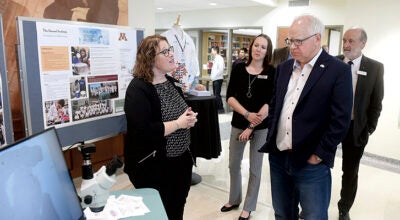Obama conditionally backs offer on Syria
Published 10:52 am Wednesday, September 11, 2013
WASHINGTON — President Barack Obama conditionally endorsed a Russian offer for international inspectors to seize and destroy deadly chemical weapons in Syria as efforts to avert retaliatory U.S. missile strikes shift from Washington to the United Nations.
In a nationally televised address Tuesday night, Obama offered a rationale for greater U.S. intervention in a sectarian civil war that has dragged on for more than two years even while acknowledging that winning the hearts and minds of Americans to back another Mideast conflict remains a struggle.
The continued erosion of support in Congress for military strikes — and the resistance among the American people — underscored Obama’s challenge. The president said he had asked congressional leaders to delay a vote on a resolution authorizing limited military strikes, a step that gives the Russian offer crucial time to work and avoids a potentially debilitating defeat for Obama, at least for the time being.
Speaking from the East Room of the White House, Obama recalled the use of deadly chemical weapons in the European trenches of World War I and the Nazi gas chambers of World War II in insisting that the international community could not stand by after an attack in the suburbs of Damascus last month the administration says killed more than 1,400 civilians, including at least 400 children.
The Obama administration blames the government of Syrian President Bashar Assad.
“If we fail to act, the Assad regime will see no reason to stop using chemical weapons,” Obama said. “As the ban against these weapons erodes, other tyrants will have no reason to think twice about acquiring poison gas” and using it.
The president said it was too early to say whether the Russian offer would succeed, and any agreement must ensure that the Syrian government was fulfilling its commitments.
However, the “initiative has the potential to remove the threat of chemical weapons without the use of force, particularly because Russia is one of Assad’s strongest allies,” the president said.
Obama said he was sending Secretary of State John Kerry to meet with Russian Foreign Minister Sergey Lavrov on Thursday in Geneva, while he will continue talks with Russian President Vladimir Putin. At the same time, Obama said the United States and its allies would work with Russia and China to present a resolution to the United Nations Security Council requiring Assad to give up his chemical weapons and to ultimately destroy them under international control.
In the interim, the military will be ready, maintaining a credible pressure on Assad. Directly addressing criticism over his own vow of limited strikes, Obama said some lawmakers have said “there’s no point in simply doing a pinprick strike in Syria.”
“Let me make something clear: The United States military doesn’t do pinpricks,” the president said. “Even a limited strike will send a message to Assad that no other nation can deliver.”
The speech capped a frenetic 10 days that began with military action seeming imminent until Obama unexpectedly announced he would seek congressional authorization for the use of force against Assad. Congressional opposition from an unusual coalition of conservative Republicans and liberal Democrats stalled the commander in chief’s push for authority as lawmakers challenged the administration’s contention that U.S. national security interests were at stake.
Obama also struggled in building international support for a military attack designed to degrade Assad’s ability to use chemical weapons.
Assad’s patron, Russia, has blocked U.S. attempts to rally the U.N. Security Council behind a military strike. But Monday, after an off-the-cuff remark by Kerry, it spoke favorably about requiring Syria to surrender control of its chemical weapons, and the Syrian foreign minister did likewise.
The foreign minister, Walid al-Moallem, said Tuesday that his government was ready to turn over its chemical weapons stockpile in line with Russia’s proposal in order “to thwart U.S. aggression.” He also said Syria was prepared to sign an international chemical treaty it long has rejected — a step it can take on its own at any time without U.S. or U.N. supervision.
Syria has refused to provide an accounting of the size of its stockpile, rarely referring in public to its existence.





